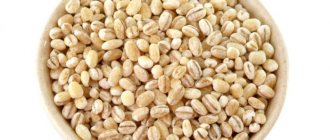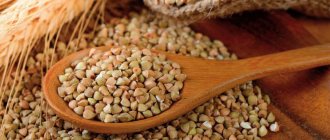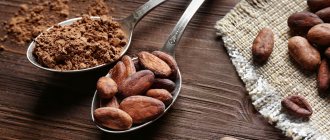Pediatricians have developed a whole set of recommendations on when it is best to introduce this or that product into the children's menu. Not only independent products such as apples, pears, cottage cheese or kefir occupy their place in it, but also flavoring additives such as salt or white refined sugar.
Sugar is widely used in home and restaurant cooking, as well as in industrial food production. However, people interested in a healthy lifestyle try to reduce the consumption of salt and sugar to a minimum, considering them not so harmless.
So, when can a child be given sugar and is it possible at all? Is this product dangerous for a developing organism?
It's all in the composition
Sugar - the usual name for sucrose - when it enters the human body, it is broken down into simple carbohydrates - fructose and glucose. Fructose is easily digested and converted into fat to create energy reserves, and glucose is broken down with the help of the hormone insulin and spreads through the bloodstream throughout the body, supplying energy to organs and tissues. However, an increased level of glucose in the blood, due to the consumption of sugar, and then a sharp decline has a negative effect on the body's pancreas, forcing it to work harder.
Impaired carbohydrate metabolism in childhood can lead to obesity and diabetes.
#PROMO_BLOCK#
What are simple sugars and what are their roles?
Simple sugars are the basic building blocks of complex carbohydrates such as starch. They are called monosaccharides (when one sweet molecule is present) or disaccharides (when two sugar groups are present). Examples of monosaccharides are glucose and fructose, commonly found in fruits, while disaccharides are:
- sucrose (regular table sugar, which consists of glucose and fructose molecules),
- lactose (a sugar in milk, made up of a molecule of glucose and another monosaccharide, galactose).
Monosaccharides are easily absorbed through the mucous membrane of the small intestine, and disaccharides, before being absorbed, are destroyed by the mucous membrane into the corresponding monosaccharides - simple molecules. Of the simple sugars, glucose is the most important, as it is used by cells to produce energy. Excess glucose is converted into glycogen (an animal analogue of starch), which is stored in the body for use during short-term fasting (within 1-2 days), and the rest is converted into fat. Other sugars, fructose and galactose, can also be used by the body to produce energy. But fructose, if consumed in excess, forms more fat compared to glucose.
Does your baby need sugar?
A growing body undoubtedly needs carbohydrates, but the baby should receive them primarily from alternative natural sources - natural vegetables and fruits.
Consumption of sugar at an early age can have a very negative impact on a child’s health:
- Digestion: sugar can activate fermentation processes in the intestines, inhibiting its beneficial microflora. As a result - stool disorders, bloating, flatulence.
- Nervous activity: young children are often prone to increased excitability, and an additional injection of “sugar” energy, the excess of which the child does not yet know how to cope with, can aggravate manifestations of irritability and even aggression in children.
- Teeth: the influence of sugar is one of the causes of so-called “bottle caries” in children of pre-kindergarten age and even in infants who are given sweet drinks. Early deterioration of baby teeth leads to their premature loss, which causes the child to develop an abnormal bite.
- Immunity: elevated blood sugar levels in a child can trigger food allergies or worsen existing ones.
- Eating behavior: Children become accustomed to sweet tastes very quickly and may begin to refuse unsweetened foods and plain water.
- Risk of gaining excess weight: sugar is a high-calorie product, the excess of which replenishes the body's fat reserves.
- Effect on metabolism: sugar contributes to the leaching of calcium and can cause a deficiency of B vitamins.
For these reasons, doctors recommend delaying a child’s introduction to sugar as much as possible.
Sugar and the immune system
Studies have shown that simple and refined sugars such as glucose and fructose suppress the immune system and can reduce the ability of white blood cells to absorb bacteria and kill germs by up to 50%.
This suppression of the immune system can last up to five hours. Complex carbohydrates, compared to simple ones, do not have a negative effect on the immune system. The effect on microflora is no less pronounced. The body's microbiome is made up of trillions of beneficial bacteria that digest food, produce vitamins, and protect the body from germs and disease. But when children consume too much sugar, it can change the balance between good and bad bacteria and weaken the immune system. Therefore, although your children may get colds often. Health problems will begin to disappear if you reduce the amount of sugar in their diet.
It's a question of time
Why exactly “delay”?
The fact is that it is unlikely that it will be possible to completely eliminate sugar from a child’s diet. It is still included in one quantity or another in the vast majority of products on store shelves. Therefore, the question remains relevant: at what age can children eat foods with sugar?
Most modern pediatricians strongly recommend not adding sugar to the diet of children under one year old. They agree that in order to adequately meet the energy needs of such babies, it is enough to receive lactose - milk sugar - through breastfeeding or, on the recommendation of a doctor, from special adapted mixtures. Valio Baby infant formula does not contain sugar or salt and is an excellent complementary food for babies from an early age.
(there should be a sidebar about Valio Baby formula here)
At about six months of age, the baby will begin to receive fructose and glucose from natural fruit purees, and his body will receive complex carbohydrates from cereals and vegetables.
Around the same time, it will be time to get acquainted with fermented milk products. If the baby does not want to eat unsweetened dishes - for example, refuses cottage cheese or kefir, you can replace white sugar with fresh or dried fruit puree. Sugar in foods is also not recommended for children under one year old.
Starting from 3 years old, the child can be offered some marmalade, jam, marshmallows or marshmallows, ideally home-made. You can also offer your baby honey, but not more than 1-2 teaspoons, adding it to any dish.
But it is better to postpone the introduction to chocolate, ice cream and sweet pastries until at least 5-6 years.
Recipes for children under one year old
It is important not only to choose the right products, but also to prepare them so that the baby gets as much benefit as possible.
Please note! The baby should not be force-fed; the task of parents up to one year is to introduce him to a variety of products and food of different consistency
Vegetable soup
Vegetable puree soup is suitable for little ones. It can be prepared from any products familiar to the baby and to his taste. For example, from zucchini, potatoes, carrots or broccoli, cauliflower.
Step-by-step cooking recipe:
- Wash the selected vegetables thoroughly, peel and finely chop. Usually they are taken in equal proportions, but you can always experiment;
- Place in a saucepan of boiling water and cook until soft;
- Grind with a fork or blender, adding water to achieve the desired consistency.
You can add a little butter at the end. Give the baby the soup when it has cooled down.
Consistency of vegetable soup for first feeding
With Chiken
At what age can you give your child chicken soup depends on whether it is cooked in water or broth. In the first case, it can be administered after 7 months, in the second - 8-9 weeks later.
If you plan to use broth, then after the first cooking it is better to drain it. Then pass the finished chicken meat through a meat grinder and return it back to the soup. You can add a little onion, parsley and carrots. All pieces should be small, the carrots must be boiled until soft.
For a glass of broth you will need 70-80 grams of meat. If desired, you can add a tablespoon of milk or a piece of butter at the end of cooking.
With meat
It is better to cook soup with meat in water. Boil the product separately and grind it in a meat grinder. Add onions and carrots to the soup. If desired, you can add any vegetables, such as zucchini, potatoes or broccoli. Flour is used to give a puree-like consistency. A teaspoon is diluted in water and added to the dish during cooking.
The finished soup can be rubbed through a sieve or used in a blender. It is convenient to regulate the density by adding water. For 100 grams of meat you will need about a glass of water, a third of a small carrot and a little onion. If you plan to include other vegetables in the dish, then take about 20 grams of each.
Fish
Soup for a 10-11 month old child can be prepared with fish. Pollock fillet is suitable for it. Do not use canned food under any circumstances:
- Boil potatoes, carrots and onions;
- Add the fish, be sure to remove the bones and clean it if necessary. She needs to spend no more than 5 minutes in boiling water;
- Grind the soup, add a small amount of boiled milk if desired.
For 100 grams of fish you need a small potato, 5 grams of onion and a third of a carrot.
With potato
Mashed potato soup is suitable for children who are still difficult to cope with pieces. It will be a great way to stimulate chewing skills:
- Wash the potatoes, peel and cut into arbitrary pieces;
- Boil until soft;
- If your baby drinks milk, add in an age-appropriate amount. Remember that up to a year it must be diluted with water. Whole milk, both cow's and goat's, is prohibited for such babies;
- Add carrot juice or cook finely grated vegetables along with potatoes;
- Cool the dish to body temperature.
For 200 grams of potatoes, 100 milliliters of milk and a teaspoon of carrot juice are enough. You will need at least one glass of water.
Other
Broccoli soup is easy to prepare and very healthy. Boil 100 grams of cabbage and one medium-sized potato. The less water in the pan, the more nutrients will be retained in the vegetables. You can bring vegetables to readiness in a slow cooker. When the vegetables become soft, blend them with a blender. If desired, you can add a little low-fat cream, then the already tasty soup will acquire a pleasant creamy consistency.
Broccoli soup
You can cook the rice and then rub it through a sieve. After this, dilute the dish with boiled milk and add a piece of butter. After 8-9 months, baby soups are cooked with vermicelli. You can prepare a dish of potatoes, carrots and onions, adding a handful of pasta at the very end. It’s better to start with products intended for baby food.
It's important to understand
It is recommended to introduce sweets to your baby after the main meal, and not as a reward.
Getting children used to food additives, including sugar, too early occurs solely on the initiative of adults. Some parents believe that the baby refuses to eat because baby food seems bland and tasteless. However, when trying to feed your little one by sweetening food, you can “knock down” the baby’s taste sensations - sweet food will become “the norm” for him and in the future it will be difficult for him to get used to the natural taste of foods.
Valio Baby baby food contains neither sugar nor salt - adding them to food for babies is officially prohibited by law, and responsible manufacturers comply with this rule.
Substitutes
You can use products that include natural sweetness. For example, fruits such as banana or apple may be suitable for you, as well as dried fruits such as raisins and prunes. Alternatives to sugar include both natural and artificial substitutes.
Natural
- Products containing glucose. For example, grapes, raisins, stone fruits.
- Products containing fructose. Most are fruits, as well as berries.
- Brown sugar. Safer, contains more vitamins and minerals than beetroot. But do not forget about its high calorie content.
Artificial
The industry has been producing artificial sugar substitutes for quite a long time. They are mostly intended for people suffering from diabetes. And completely unacceptable in the diet of a small child. These include the following drugs:
- aspartame;
- cyclamate;
- saccharin;
- thaumatin;
- acesulfame;
- sucralose.
Now you know that sugar should not be included in the baby’s menu. And for a one-year-old child, it should be very rarely found in dishes. Give preference to fruits and berries, while getting not only sugar, but also useful minerals and vitamins. Take care of your child's future health from the cradle, and then he will grow up healthy and happy.
Let's sum it up
Granulated sugar is not necessary, and in the children's menu you can completely do without it. But water with sugar is not a healthy drink for babies. You can give water with sugar only on the recommendation of pediatricians as a treatment for jaundice. You can add salt and sugar to baby dishes from 10-12 months. But it is best to protect your baby from sweet temptation until he is 3 years old. Mothers should take into account that, having tasted sweet foods, the baby may not want to eat sour and bland foods. And do not forget that the abuse of this white supplement is harmful to health.
When can you start giving your children sugar?
The very first portions of carbohydrates come to the baby through mother's milk. It contains lactose. Sucrose is much sweeter than lactose, but less healthy. Infant formulas contain maltose. In the second half of life, carbohydrates begin to enter the body through complementary foods. So, fruit purees contain fructose, and cereals contain glucose. These dishes do not have a pronounced sweet taste; sometimes they are sour or bland. And when the baby refuses to eat, the mother rushes to “sweeten the pill” by adding sugar to the porridge. Is it worth doing?
When can you give your child sugar? It is strictly not recommended for children under 10 months to sweeten their meals. It is advisable for children with allergies to wait until they are 1 year old. In fact, sugar does more harm than good for children, so it is better to delay introducing it to your child until he is three years old. The maximum daily sugar intake for 3 years is 6 g.
The famous doctor Komarovsky also does not recommend adding sugar to baby foods.
Read about introducing salt into your baby’s diet in the article “When to introduce salt into your baby’s diet.”











